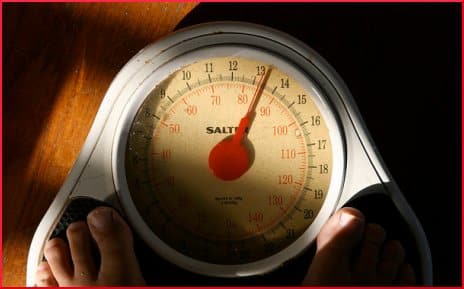
Early intervention to avoid childhood obesity is a hot topic. The reason is obvious, and expressed by the old proverb, “A stitch in time saves nine.” In other words, if the edge of your pocket is starting to tear, sew it up, because once that little tear has been made it’s so much easier for it to catch on something and rip the whole pocket right off. Which would require a lot more than nine stitches, actually, to fix. Once again, folk wisdom points the way.
One reason why early intervention is to be desired, as Childhood Obesity News has discussed, is that habits start early and are exceedingly hard to break once they have taken hold. Of course there are many others.
Childhood is not the only time when obesity presents a danger, obviously, and now it appears the situation is even worse than previously suspected. For a while, it was accepted that people could sort of “age out” of obesity risk. This was supported by such half-baked notions as a theory that the fat padding protects obese seniors from breaking bones when they fall.
Anyway, it’s incorrect. The Mailman School of Public Health at Columbia University says:
… [A] slew of prominent research has reported an ‘obesity paradox’ that says, at age 65 and older, having an elevated BMI won’t shorten your lifespan, and may even extend it. A new study takes another look at the numbers, finding the earlier research flawed. The paradox was a mirage: As obese Americans grow older, in fact, their heightened risk of death climbs…
How do we know this? Columbia and the University of Texas put together the research team of Ryan Masters, Ph.D.; Bruce Link, Ph.D.; and Daniel Powers, Ph.D., to take a second look at that assumption. Columbia’s website quotes Dr. Masters, who is also a Robert Wood Johnson Foundation Health & Society Scholar:
Obesity wreaks so much havoc on one’s long-term survival capacity that obese adults either don’t live long enough to be included in the survey or they are institutionalized and therefore also excluded. In that sense, the survey data doesn’t capture the population we’re most interested in.
Dr. Masters does not entirely blame earlier studies for getting it wrong, however, for an interesting and rather ominous reason:
The recent obesity epidemic hit all age groups at the same time, meaning many of the elderly obese only gained their excess weight in the last 10 years or so.
Here is another recent obesity-related discovery to be concerned about: When an obese mother has a child, even if that child somehow escapes becoming obese herself or himself, there will still be a greater risk of heart disease for that child. Why? Because the aorta is thickened, and, according to this report:
Thickening of this main artery is an indication of early atherosclerosis, the disease that leads to the majority of heart attacks and strokes, and is characterized by the development of plaques in the walls of the arteries.
P.S. Have you looked over on the right-hand side of the page lately? Don’t miss Dr. Pretlow’s new webinar, “The Epidemic of Childhood Obesity: What Is Our Plan?”
Your responses and feedback are welcome!
Source: “Old Age Offers No Protection from Obesity’s Death Grip,” Columbia.edu, 02/05/13
Source: “Heart disease signs in newborns of overweight and obese,” News-Medical.net, 03/04/13
Image by Puuikibeach (davidd).

 FAQs and Media Requests:
FAQs and Media Requests: 











